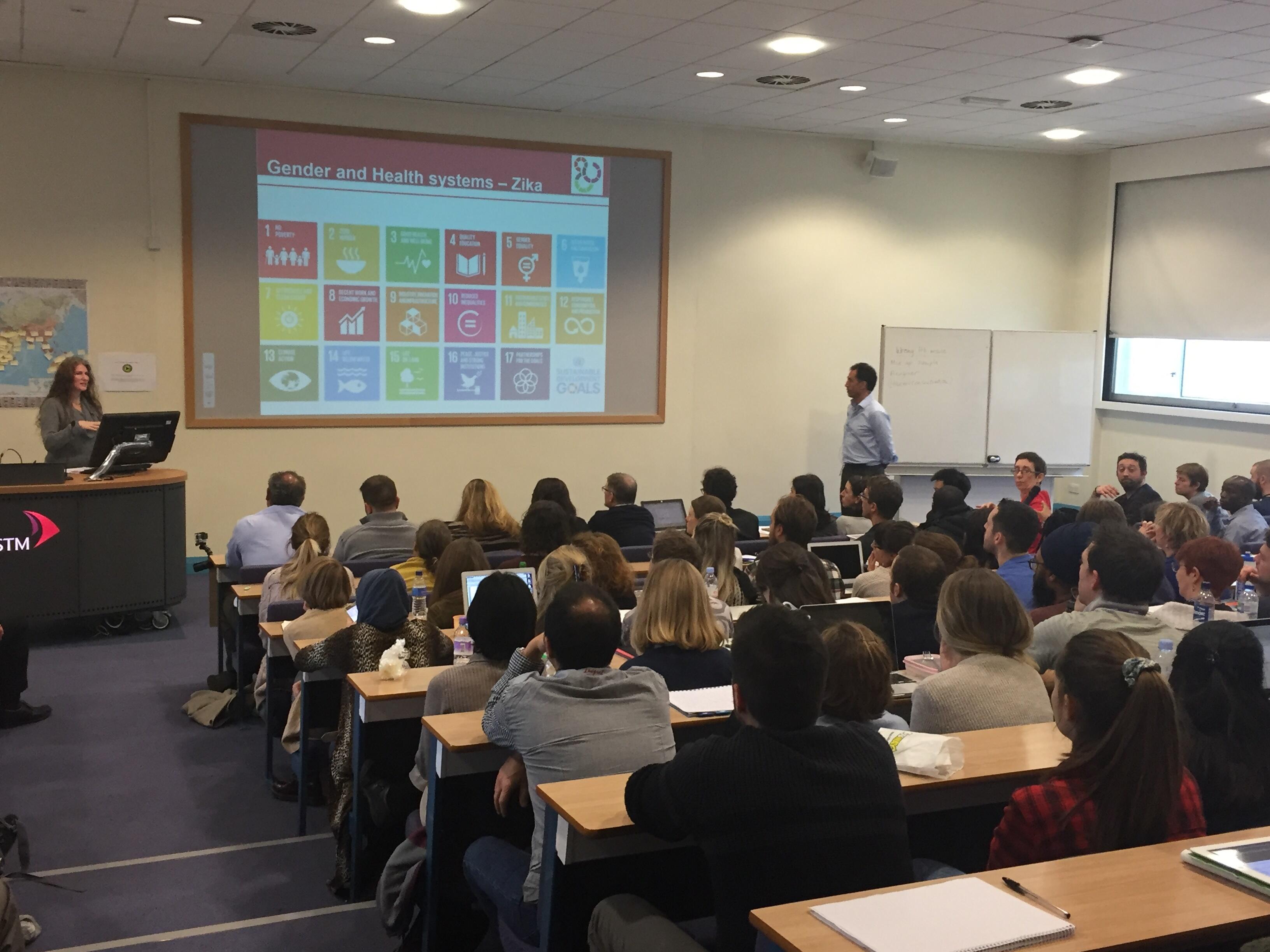
A special symposium on the ongoing Zika virus outbreak in South America took place at LSTM today with over 130 in attendance comprising of LSTM staff, postgraduate students and students undertaking the Diploma and Tropical Medicine and Hygiene (DTM&H) course.
Professor David Lalloo chaired the symposium which consisted of an informative lecture delivered by Dr Lee Haines, a postdoctoral researcher in the Department of Vector Biology. The presentation was split into three sections consisting of an introduction to the virus and routes of transmission, followed by its potential links to other conditions particularly microcephaly and the impact that this has had in terms of gender equity and rights. The presentation concluded with current and future vector control solutions and vaccine development.
Following each part of the presentation the floor was open to questions from the audience which were answered with the support of an expert panel including Professor Luis Cuevas representing clinical sciences, Dr Philip McCall and Dr David Weetman representing vector biology, Dr Daniela Ferreira representing vaccine development and Professor Sally Theobald representing gender equity and the social burden of the Zika virus outbreak.
Questions touched on all topic areas and came from both students and staff members. The key points repeated throughout was that Zika did not behave like other viruses of its kind and, at this point, there are a number of knowledge gaps that need to be filled for research to move forward. One of the most poignant questions was that if a causal link was not found with the condition microcephaly in children, which is currently not proven, will the huge amount of funding promised be withdrawn. It was LSTM’s Dr Phillip McCall that pointed out that funding should be pushed into vector control as Zika represents the third massive outbreak to hit Brazil in the last three decades transmitted by the mosquito Aedes aegypti.
Professor David Lalloo commented: “The symposium was a great success, engaging the audience throughout and generating many excellent questions. The session illustrated the broad expertise of staff members at LSTM to the DTM&H students and gave them an insight into the many issues thrown into focus by an outbreak of this nature, which extend beyond the clinical to the social burden of the stigma associated with the disease and its possible outcomes.”